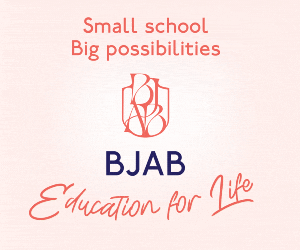Personal Development: Being Yourself – Axel Trinh-Cong gives us advice on how to reconnect with yourself.
Become who you truly are’, ‘reconnect with yourself’, ‘be yourself’: these are all very common phrases within the self-help community, and we tend to simply accept them, without asking any questions. Yet, a few of these might come to mind. For instance, is it even possible to not be oneself? And if so, what does it really mean? If I am not myself at this very moment, then who am I?
But, for the time being, let’s accept the premise that it is possible to become ‘the person we truly are’. Let’s also remember that the notion of ‘becoming’ implies a change of state through time.
Now, let’s imagine that you already are your true self. That would mean that you needn’t change anything about yourself, since you would have already achieved a state of perfect authenticity. And yet it is quite common knowledge that, unless you happen to be impervious to the fundamentals of life itself, you will continue to grow and change. At this point in time, you are no longer the person you were when you started reading this article. We might say your body has changed in accordance with its various functions, and presume that new thoughts have entered your mind – such is law of Nature.
And since only unliving things in this world remain unchanged, if you were to be at once always yourself and always the same, that would entail that you could only mutate towards a state that was more or less ‘you’ – and this is a thought which, you must agree, makes little sense.
Through my experience as a medium and counsellor, I’ve learned that we remain ourselves and undergo perpetual change, all at once. In fact, the two phenomena go hand in hand. Even while we are changing, we do so entirely as ourselves, and every modification is a reflection of who we are. In actual fact, we never cease to be ourselves – we could never be anything else. However, what does change every instant is the way in which we experience ourselves. As for the self, it remains, always has remained and always will remain the same. This last point is crucial, because it absolutely changes everything.
Whether the moon is full, in its last quarter, in Cancer or in Aquarius, it never stops being the moon, though its energetic tonalities and colouring may differ. This is why, for a lot of people, phrases such as ‘become who you truly are’ tend to bring not only confusion but also internal disruption. We may begin to look outside of ourselves in search for this elusive ‘self’, which is supposedly different from the present ‘self’, and in turn look harshly and with judgement upon the current self, believing it is not the ‘true self’. But of course, we were ourselves all along. These common phrases, which are intended to be constructive and encouraging, end up creating harshness, a lack of self-love and, therefore, suffering.
And so we must understand that the goal is not to strive for a different, better and more accurate self, but to develop a different kind of awareness of ourselves, here and now. Only with this understanding can we now ask the questions: ‘who am I?’ and ‘what is the self’?
Our ego – which is inherent and indispensable to incarnation – tends to cause trouble by creating confusion between two sentiments: ‘I have’ and ‘I am’. But what we think we possess is always transient. The only thing we do truly possess in a durable way is our self.
What we have, in the sense of what manifests in the material world, is indeed a good way to distinguish ourselves from others and to have our identities recognized. This is how what we have can very often become a way of expressing who we are. For instance, think of a piece of clothing you might have purchased in the spur of the moment, and brought home. But whilst you marvel at this garment, which is so your style and shows off your personality so well, your partner immediately expresses reservations and even confusion, saying: “What on Earth are you wearing?”







